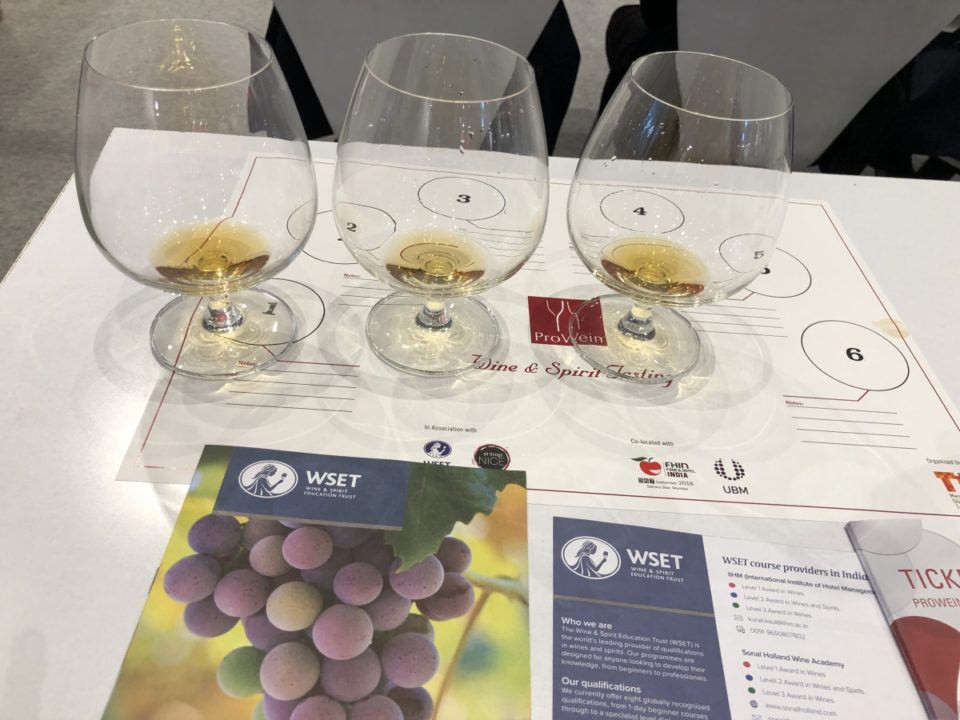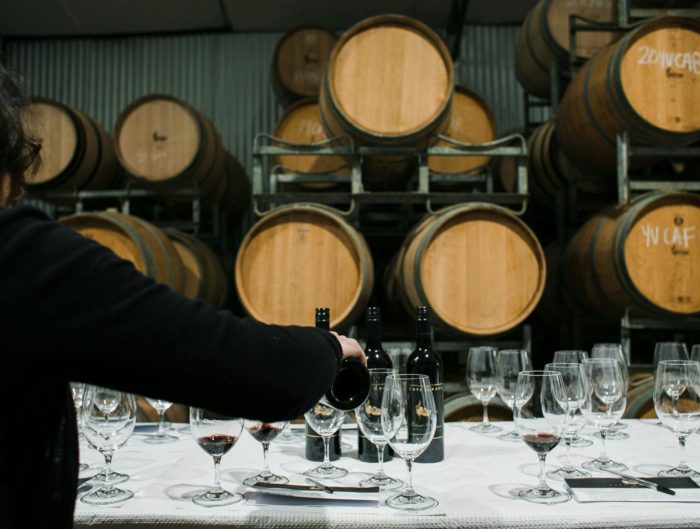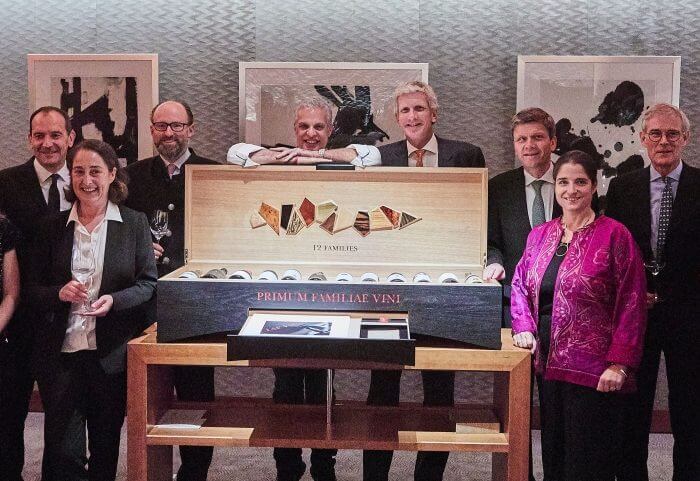The key to a healthy wine industry in India is easy availability of well-priced wines. High taxes on wine and spirits remain India’s biggest challenge to achieving rapid growth like China, says Jude Mullins, international development director, WSET

Jude Mullins, international development director, WSET, in Mumbai during the prowein education campaign
Earlier this year, Prowein, the world’s largest wine trade fair brand made a low-key appearance at a Mumbai-based trade show. In collaboration with the WSET, the world’s best-known authority in the wine and spirits education field, Prowein put together an interesting wine-centric three-day education programme in a specially created 40 seater booth. On all three days, the sessions were sold-out, brimful with wine enthusiasts and trade professionals keenly awaiting every session, whether it be on sparkling winemaking techniques or the suitability of Grenache grapes for Indian soil.
As both an industry watcher and as someone who believes in the positive aspects of formal education, I was intrigued. Was this the beginning (albeit in a small way) of greater interest in wine and spirits education in India? What would international qualifications like those offered by the WSET give to people working in India’s wine and spirits industry? Are there enough jobs out there in India?

At the Prowein Education Campaign run with the WSET, Mumbai September 2018
In an effort to find answers, I interviewed Jude Mullins, Hong Kong-based international development director, WSET, on the sidelines of the event. Mullins had come down to represent the wine school and conduct several sessions and was assessing the possibilities of growth of the WSET within India.
First, let’s get a perspective on the WSET, the best-known wine school in the world.
It is five decades old, created in 1969 primarily to help the UK wine trade. In these decades, it has grown rapidly and expanded its reach. Today, there are over 700 APPs (approved programme providers) around the world, offering 8 levels of WSET qualifications in 17 languages. That makes it a whopping half-million individuals who have enrolled for a WSET qualification since the beginning. (Data courtesy WSET)
Recently, the WSET’s biggest success story has been in China. In Mainland China alone, the growth in demand for WSET education in wine and spirits has been 41% year on year. China boasts of 126 WSET course providers in 36 cities today, a few short years after they commenced operations in China in 2006.
Impressive figures, without a doubt.
Picking up from the enthusiastic response to their maiden education campaign in Mumbai, I asked Jude Mullins about WSET qualifications and its role in helping those seeking careers in the wine industry in India; its prospects and potential for growth in India.
(Please see the two-part YouTube video interview below for more details from her.)
The three-day Prowein Education Campaign held in Mumbai was a sold-out success. Can we expect more of the same going ahead, in similar or different formats?
We were very happy to see the attendance of so many different people attending the Prowein Education Campaign from across the drinks industry sector. This certainly reflects the desire of trade professional to learn about wines and spirits and the importance placed on knowledge within the industry. I certainly hope that WSET will be involved in future initiatives with Prowein in India going forward.
Has the Mumbai experience helped WSET and yourself understand better in any way, the profile and requirements of wine and spirits education in India?
Certainly!
It was a privilege to meet so many different representatives of the Indian drinks industry, many of whom had already completed WSET qualifications, or who were looking to progress their studies. From our various conversations, the biggest challenge still remains the availability of a wide range of wine (and spirits) samples at reasonable prices. Access to a broad range of international wines is vital for any professional who is looking to advance their learning and tasting experience. This situation is not unique to India but is certainly a deterrent for those who want to progress to higher qualification levels with WSET as the high cost of wine also increases the cost of qualification courses.
During the panel discussion, we spoke of what Levels 2 & 3 can do to help those looking for careers in wine and spirits. What specific additional routes are you looking at to trigger further interest?
WSET qualifications develop knowledge and tasting experience in a very systematic way, giving students the opportunity to build upon what they have studied at previous levels as they progress. I certainly believe that there is great potential within academic institutions in India to incorporate WSET qualifications into their degree programmes. This would not only benefit those students who are preparing to work within India, but also give those who travel overseas for work an international qualification that is recognised around the world.
The China market, for one, has been growing quickly and steadily. What learnings from there can we apply to other Asian markets, especially India? Any anecdotal examples you can share?
One of the biggest experiences I have from my work in China is the high value placed upon learning about and experiencing wine. This has also been mirrored by the increasing availability of a wide range of international wines in the market at a wide range of price points. Whilst initial students were predominantly from the drinks industry (and this remains the case at our higher qualifications) there are increasing numbers of wine lovers studying WSET courses which is really positive for the industry. Additionally, we have seen a great desire to share knowledge about wine by those of have already completed WSET courses, with many graduates wanting to become educators and offer their courses themselves.
The wine industry in India is relatively small. What job opportunities might exist for those who complete their various WSET levels?
The wine industry in India may be relatively small, but it is certainly dynamic with lots of potential opportunities in a wide range of different fields. WSET qualifications provide the backbone of product knowledge and tasting experience that can be used across different sectors of the industry giving great flexibility, whether this is as a sommelier in the on-trade, working in distribution or sales, marketing or even education to name just a few opportunities. There are certainly lots of new opportunities arising in the industry, not least because India’s own wine production is growing in importance, and this will only continue.
What do you consider the biggest challenges faced by India today, vis-a-vis wine and spirits education? And ideas on dealing with these?
As I have mentioned, the availability and high cost of international wines and spirits is one of the biggest challenges and certainly has an impact on education. Students may be limited in the range of samples they are able to experience, or the cost of samples increases the cost of the course to a level that means it cannot be afforded by many who would benefit from this opportunity. Is there a solution? – well, in live in Hong Kong, where the government took the bold decision to remove tax and duty on wines in 2008!
Watch both the interview videos, below, for more.
Insights: The WSET and careers in wine – Jude Mullins, Part1
Insights: WSET in Asia and the spirits education boom – Jude Mullins – Part 2:
Details on the Wine & Spirit Education Trust (WSET) may be found on https://www.wsetglobal.com, including the list of APPs (Approved Programme Providers) in India.















